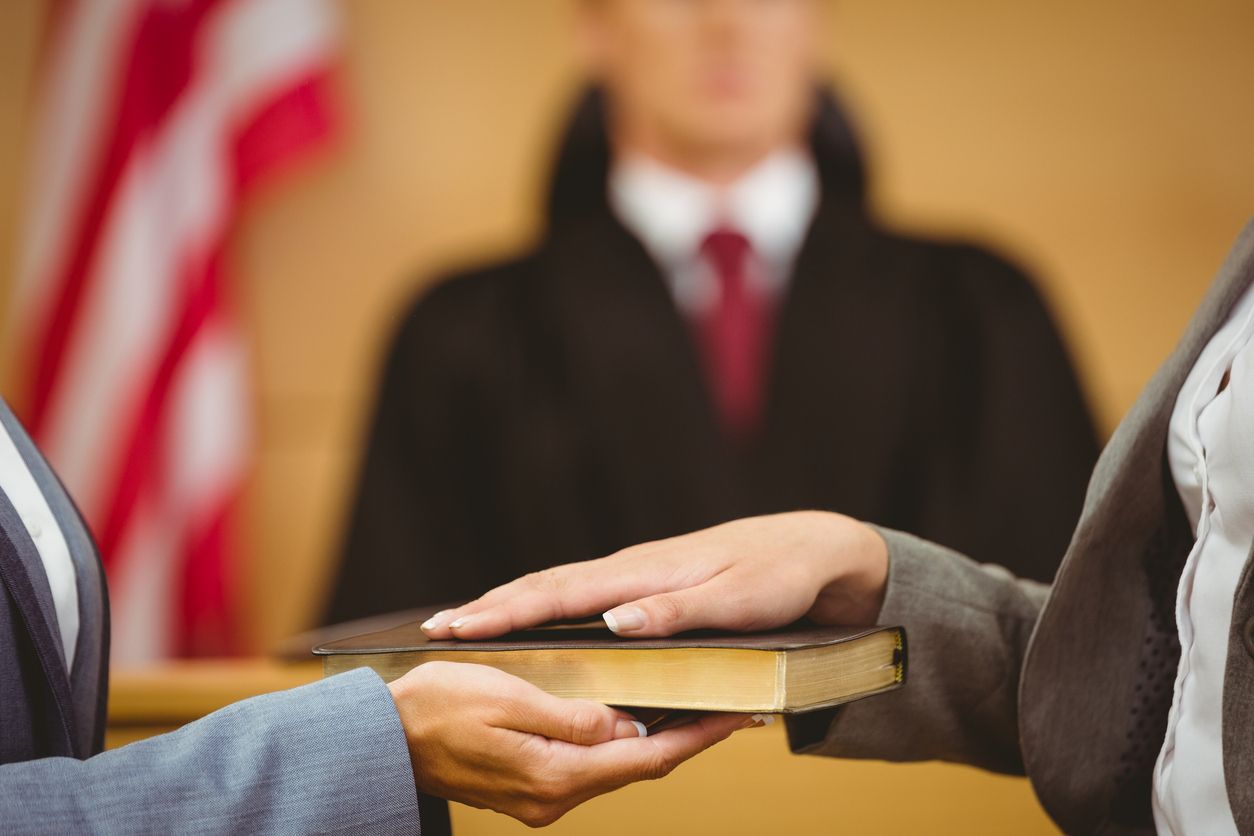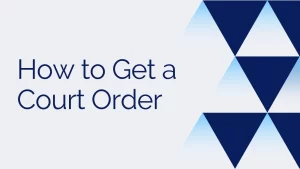Can Family Members Be Witnesses in Court?
Family dynamics can be complicated, especially when legal matters are involved. So what happens when a family member is a witness in a court case? Can relatives testify for or against each other? Here’s a look at the laws and limitations around family members as witnesses.
The Short Answer
Yes, family members can generally serve as witnesses in court. There is no blanket prohibition on relatives testifying at trial. However, there are some exceptions and special considerations to keep in mind.
Who Qualifies as a Family Member?
Family members typically include:
- Spouse
- Parent
- Sibling
- Child
- Grandparent
- Grandchild
- In-Laws
- Stepfamily
- Life Partners
- Adopted Family
The specific definition can vary by state and legal context. But in general, family comprises people related by blood, marriage/partnership, or adoption.
The Ability to Testify
For Criminal Cases
In criminal trials, family members can testify for either the prosecution or defense. Defendants also have the right to subpoena and compel testimony from immediate family if relevant to their case.
However, testimony from family may face more scrutiny and credibility challenges. Factors like bias, loyalty, emotions, and coercion can come into play.
For Civil Cases
Relatives can be witnesses in civil litigation too. Lawsuits involving family disputes, injuries, divorces, estate matters, and more may necessitate testimony from family members.
Standard evidentiary rules apply in terms of relevance and admissibility. But family ties could again impact perceptions of credibility and neutrality.
Spousal Privileges
Spouses have special testimonial privileges in court. The marital communications privilege allows spouses to refuse to disclose private communications. The spousal testimonial privilege allows them to refuse to testify against each other in criminal cases.
However, these privileges are limited. They don’t apply in cases of domestic violence, divorce proceedings, child custody disputes, or civil cases between spouses. The privileges can also be voluntarily waived.
Parent-Child Privileges
Parent-child privileges vary widely between states. Many don’t recognize a privilege, some prohibit parents from testifying against kids under 10, and others have restrictions for juvenile proceedings only.
The proposed federal Parent-Child Privilege Act would prohibit parents from testifying against minor children. But currently no blanket privilege exists.
Confidentiality with Minors
Special care must be taken with minor witnesses. Children’s testimony requires additional protections for their privacy and well-being.
Judges can close proceedings, seal records, use pseudonyms, omIt unnecessary details, or take other precautions when kids testify, especially in sensitive cases.
Competency Concerns
For any witness, competency is key. To testify, a person must have personal knowledge of the case, understand their duty to tell the truth, and be able to communicate under oath. Age, mental capacity, or other issues could render a witness incompetent.
Family members with competency concerns may be prohibited or limited in their ability to testify. Accommodations like simplifying questions may be made when appropriate.
The Role of Expert Witnesses
Expert witnesses are a special case. Doctors, psychologists, accountants, or other expert professionals may testify in cases where their expertise is relevant.
If a family member happens to be an expert in a pertinent field, they could potentially serve as an expert witness. But steps must be taken to ensure true impartiality.
Ethical Considerations
There are many ethical issues to weigh with family member witnesses including:
- Conflict of interest
- Divided loyalties
- Emotional bias
- Coercion within families
- Privacy violations
- Best interests of minors
Judges and attorneys have a duty to assess these factors and prevent unethical testimony.
Practical Impacts of Family Testimony
Family ties could sway proceedings through:
- Sympathy triggers
- Knowledge of private matters
- Intimidation of victims/defendants
- Reluctance to testify against loved ones
Balancing fairness and justice with family bonds can be tricky in court. The jury may need to determine credibility and assign appropriate weight to familial testimony.
The Reality of Courtroom Questioning
Testifying puts witnesses in the hot seat, being questioned and cross-examined. The experience can be stressful, invasive, and emotional even without family involvement.
When family is concerned, the intensity and discomfort of harsh courtroom questioning could be amplified given the sensitivities and vulnerability.
Thinking Strategically
The decision to put family on the stand is strategic. Attorneys must weigh benefits against risks like:
- Damage to the family relationship
- Trauma, anxiety, stress
- Privacy violations
- Perceived bias/credibility issues
- Possibility of self-incrimination
Alternatives to Testifying
There may be alternatives to family members testifying in court including:
- Written statements/affidavits
- Recorded testimony
- Third-party witnesses
- Stipulations of fact by attorneys
- Judicial notice of undisputed facts
Each has advantages and disadvantages to weigh given the case specifics.
When Testimony Is Unavoidable
Sometimes there are no viable alternatives and family testimony is unavoidable. For example:
- Eyewitness to a crime
- Specialized expertise
- Child custody disputes
- Contested wills/estates
- Cases hinging on marital communications
Here, accommodations can be made to ease the burden and safeguard relationships as much as possible.
Accommodations for Family Witnesses
If family must testify, certain accommodations may help including:
- Closed courtrooms
- Remote testimony
- Breaks during testimony
- Separate waiting areas
- Limiting repetitive/hostile questions
- Allowing a support person
- Sensitivity to cultural factors
- Extra privacy safeguards
The Reality of Family Dynamics
Testifying involves revealing information to the public record that can impact family relationships long term. It forces people to:
- Relive private memories
- Admit uncomfortable truths
- Go against loved ones
- navigate divisions of loyalty
- Process betrayal/hurt
These interpersonal effects are important to anticipate. Support may be needed during and after the legal process.
Seeking Outside Counsel
Independent legal counsel is advised for family members who may testify. An outside attorney can provide guidance on:
- Asserting privileges/protections
- Avoiding self-incrimination
- Mitigating family fallout
- Managing privacy rights
- Navigating ethical dilemmas
They serve the witness’s best interests rather than the family or case as a whole.
Judicial Discretion
Judges have discretion over witness testimony including who appears, what gets asked, and how proceedings are conducted. With family, they must balance:
- Evidentiary value
- Privacy rights
- Potential trauma
- Maintaining court decorum
- Safety of vulnerable parties
Judges can thus limit inappropriate questions and take protective measures when needed.
State-Specific Nuances
Laws vary significantly between states so it’s essential to consider location-specific regulations on issues like:
- Spousal privilege scope
- Parent-child protections
- Competency standards
- Vulnerable witness rules
- Confidentiality statutes
- Child testimony restrictions
- Domestic abuse exceptions
Consult a local attorney to understand state laws on family member witnesses.
Conclusion
In summary, family members are generally permitted to testify in court proceedings both for and against loved ones. But privileges, competency concerns, ethical issues, and practical considerations come into play. Weighing the costs and benefits of putting family on the stand strategically while making appropriate accommodations can help balance justice with protecting relationships. Above all, specific state laws and judicial discretion determine how family testimony is handled. So obtaining local legal guidance is key when family dynamics intersect with the court system.
FAQs
Can parents testify against their child?
In most states, yes – there are limited parent-child privileges and no blanket prohibition. But judges may use discretion to protect minor children.
Can siblings be made to testify against each other? Siblings can generally be compelled to testify against each other in both criminal and civil proceedings.
What about grandparents or cousins? Extended family members face fewer restrictions on testimony compared to immediate family. But bias and credibility judgments may still apply.
Can spouses testify against each other in divorce court? Yes, with limitations. Spousal privileges don’t apply in divorce cases or civil proceedings between married couples.
Are statements made in family therapy confidential in court? It depends on the state law and situation. Many don’t recognize a privilege for family counseling communications parallel to doctor-patient confidentiality.







